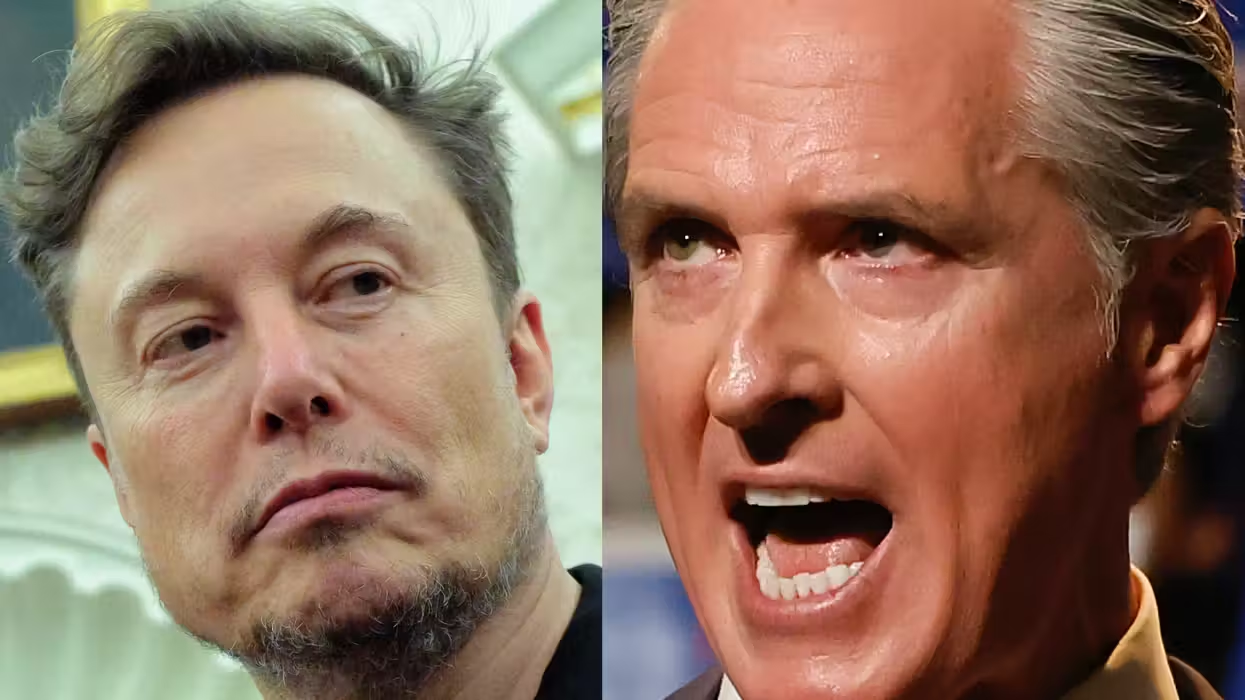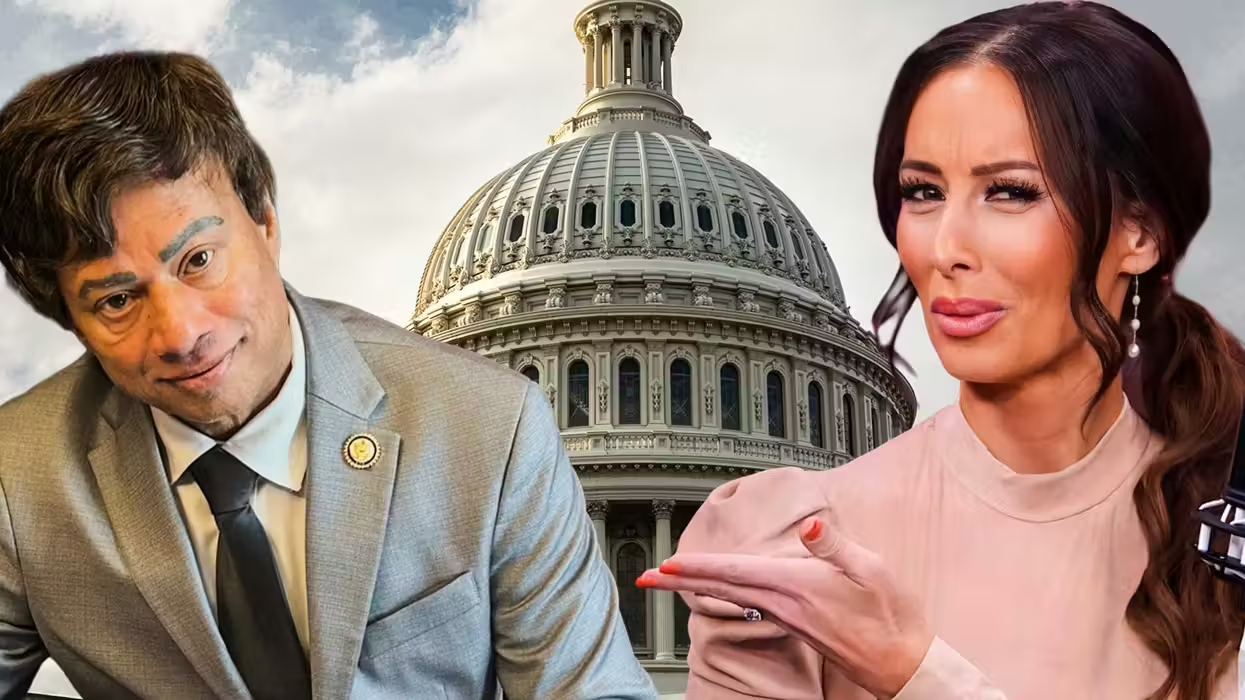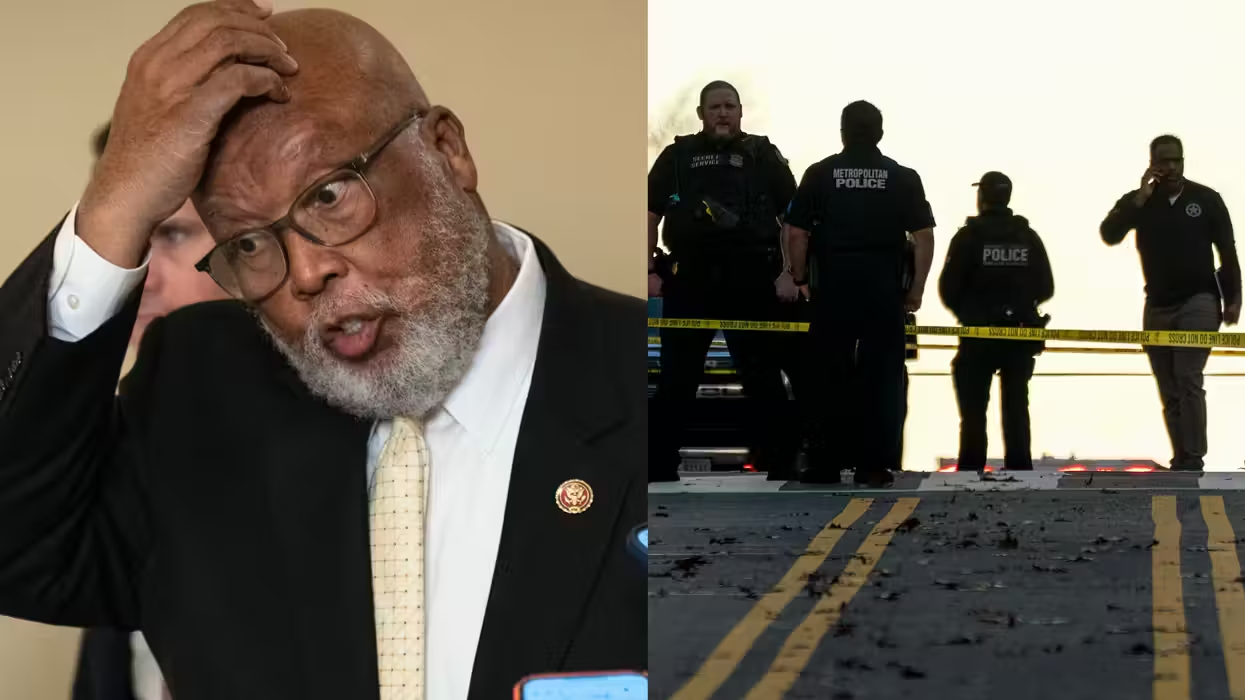© 2025 Blaze Media LLC. All rights reserved.
"Why in the world, in the era of trillion dollar deficits, should the taxpayer have to subsidize it?"
NPR's firing of Juan Williams Wednesday has ignited a firestorm, leaving some politicians wondering whether the organization should lose its public funding, and many in the media questioning the real reason behind the news veteran's axing.
In comments to CNN, former Arkansas governor and fellow Fox News contributor Mike Huckabee said that the hasty dismissal of Williams amounts to censorship, which is unacceptable from a publicly-funded organization.
"NPR has discredited itself as a forum for free speech and a protection of the First Amendment rights of all and has solidified itself as the purveyor of politically correct pabulum and protector of views that lean left," Huckabee said in a statement provided to CNN.

Those comments are in response to Williams's remarks to Bill O'Reilly on Monday (regarding political correctness getting in the way of safety) that he gets "worried" and "nervous" on flights when he sees "people who are in Muslim garb." According to Williams, the firing took place over the phone, and his boss denied him the opportunity to explain his comments in person.
"It is time for the taxpayers to start making cuts to federal spending, and I encourage the new Congress to start with NPR," Huckabee said. He added that he will refuse all interview requests from NPR as long as it remains publicly funded.
While Huckabee is the first high-profile figure to call for an end to NPR's public funding since the Williams incident, the charge isn't anything new. In June, the Daily Caller reports, Rep. Doug Lamborn (R-CO) introduced legislation aimed at ending government funding for the Corporation for Public Broadcasting (through which federal funds are funneled to NPR) after 2012. Not surprisingly, the measure stalled in the Democrat-controlled Congress.
“This is an organization that can stand on its own. Why in the world, in the era of trillion dollar deficits, should the taxpayer have to subsidize it? It doesn’t make sense,” Lamborn told the DC. "I would love to defund NPR completely. Not because I don’t like it ... but because it can stand on its own.”
Defunding the news outlet, however, has incited a bring-it-on-type response from NPR. In response to Huckabee's remarks, NPR blogger Mark Memmot posted the following: "For the record, here's a link to charts that break down where NPR and its member stations get their money."
Those charts reveal that for fiscal year 2008, 5.8 percent of its revenues came from "federal, state, and local" government. The point seems to be that federal funds are not a big part of the organization's coffers, an insinuation that supports Rep. Lamborn's charges.

Yet NPR's boldness may be for another reason: its reporting style and ideological stances have caught the eye of liberal financier George Soros. Earlier this week, Soros's Open Society Foundations donated $1.8 million to NPR. That money will fund the hiring of 100 journalists "to bring greater transparency and accountability to the workings of state capitals across the country."
With funders such as Soros, public funding may be unnecessary.
Yet that funding raises serious questions about the integrity of NPR's reporting. Soros's funding is historically linked to liberal organizations throughout the country, including Media Matters, the Tides Foundation, Democracy Alliance, Moveon.org, and the Center for American Progress.
Also, the fact that NPR's firing of Williams comes during a week when Soros-funded Media Matters and the Tides foundation are calling on advertisers to boycott Fox News and Glenn Beck, has not gone unnoticed.
Questions Regarding Williams's Firing
In addition to funding inquiries, some are questioning NPR's reasoning for firing Williams. According to the outlet's official statement, Williams was fired because "his remarks on The O’Reilly Factor this past Monday were inconsistent with our [NPR's] editorial standards and practices, and undermined his credibility as a News Analyst with NPR."
But some aren't convinced.
Reason's Matt Welch points out that in the O'Reilly interview Williams repudiates bigoted and racist remarks:
WILLIAMS: Wait a second though, wait, hold on, because if you said Timothy McVeigh, the Atlanta bomber, these people who are protesting against homosexuality at military funerals, very obnoxious, you don't say first and foremost, we got a problem with Christians. That's crazy.
[Welch writes] Later, in a crosstalk-heavy exchange about Germany's Muslim integration issues, there was this:
O'REILLY: Juan, who is posing a problem in Germany? Is it the Muslims who have come there or the Germans? [...] Who's causing the problem?WILLIAMS: I think -- I think -- no, no, wait. See, you did it again. It's extremists. It's people who refuse to --
O'REILLY: It's not extremists.
WILLIAMS: It's a German society. They are the ones causing that problem.
[Welch writes] And then there was this:
WILLIAMS: But, Bill, here's a caution point. The other day in New York, some guy cuts a Muslim cabby's neck and says he's attacking him or you think about the protest at the mosque near Ground Zero --[...]
WILLIAMS: I don't know what is in that guy's head. But I'm saying, we don't want in America, people to have their rights violated to be attacked on the street because they heard a rhetoric from Bill O'Reilly and they act crazy. We've got to say to people as Bill was saying tonight, that guy is a nut.
O'REILLY: He is a nut. And I said that about the guy in Florida -- who wanted to burn the Koran. I came down on him like crazy.
WILLIAMS: Correct. There you go.
Welch goes on to suggest that there has to be more to the story. And he's right.
In a separate news story on NPR's website Thursday morning, writer David Folkenflik reveals what could be the real reason behind Williams's firing: NPR didn't like the opinionated Williams appearing on Fox. Writes Folkenflik:
Williams' presence on the largely conservative and often contentious prime-time talk shows of Fox News has long been a sore point with NPR News executives.His status was earlier shifted from staff correspondent to analyst after he took clear-cut positions about public policy on television and in newspaper opinion pieces.
Like Welch, Folkenflik notes that Williams went out of his way to say his comments were not bigoted, even quoting Williams's warning to O'Reilly about his recent unpopular remarks that "Muslims killed us on 9/11."
The suggestion that Williams's history of Fox News appearances led to his dismissal is not a radical idea. Last year Politico reported NPR brass pleaded with top political correspondent Mara Liasson "to reconsider her regular appearances on Fox News because of what they perceived as the network’s political bias":
According to a source, Liasson was summoned in early October by NPR’s executive editor for news, Dick Meyer, and the network’s supervising senior Washington editor, Ron Elving. The NPR executives said they had concerns that Fox’s programming had grown more partisan, and they asked Liasson to spend 30 days watching the network.At a follow-up meeting last month, Liasson reported that she’d seen no significant change in Fox’s programming and planned to continue appearing on the network, the source said.
An internal NPR memo obtained by Fox in the Williams case echoes the sentiments expressed to Liasson. In it, NPR president and CEO Vivian Schiller portrays Williams as repeatedly overstepping his bounds as an analyst and breaking NPR's ethics code:
NPR News analysts have a distinctive role and set of responsibilities. This is a very different role than that of a commentator or columnist. News analysts may not take personal public positions on controversial issues; doing so undermines their credibility as analysts, and that’s what’s happened in this situation. As you all well know, we offer views of all kinds on your air every day, but those views are expressed by those we interview -- not our reporters and analysts.Second, this isn’t the first time we have had serious concerns about some of Juan’s public comments. Despite many conversations and warnings over the years, Juan has continued to violate this principal. ...
Unfortunately, Juan’s comments on Fox violated our standards as well as our values and offended many in doing so.

The last half of the sentence above may contain more truth than even NPR would like to admit . On Wednesday the liberal Council on American-Islamic Relations, which some consider a front for radical Islam, issued a statement pressuring NPR and "calling on American Muslims and other people of conscience to ask National Public Radio (NPR) to address analyst Juan Williams' statement."
"NPR should address the fact that one of its news analysts seems to believe that all airline passengers who are perceived to be Muslim can legitimately be viewed as security threats," added CAIR National Executive Director Nihad Awad.
(Watch Megyn Kelly's explosive interview with CAIR's Ibrahim Hooper.)
Those remarks are despite the slew of statements Williams gave repudiating bigotry and racism during the interview.
Yet not all have ignored the full context of Williams's remarks. Commentators from a variety of networks and backgrounds have said that NPR was wrong for firing Williams, and have called on NPR to reconsider. The outlet's vocal dissenters even include historically liberal "The View" hosts Barbara Walters and Whoopi Goldberg.
"This is disgraceful, NPR needs to hire Juan Williams back, and I think most rational Americans agree with that," Said MSNBC's Joe Scarborough Thursday morning.
Want to leave a tip?
We answer to you. Help keep our content free of advertisers and big tech censorship by leaving a tip today.
Want to join the conversation?
Already a subscriber?
Jonathon M. Seidl is a former managing editor of Blaze News and a best-selling author and speaker. His next book, “Confessions of a Christian Alcoholic,” will be released on October 7, 2025.
Jonathon M. Seidl
Jonathon M. Seidl is a former managing editor of Blaze News and a best-selling author and speaker. His next book, “Confessions of a Christian Alcoholic,” will be released on October 7, 2025.
more stories
Sign up for the Blaze newsletter
By signing up, you agree to our Privacy Policy and Terms of Use, and agree to receive content that may sometimes include advertisements. You may opt out at any time.
Related Content
© 2025 Blaze Media LLC. All rights reserved.
Get the stories that matter most delivered directly to your inbox.
By signing up, you agree to our Privacy Policy and Terms of Use, and agree to receive content that may sometimes include advertisements. You may opt out at any time.






